Jaime Jackson is a director-member of New Leaf.
Jaime makes biophilic artworks working with communities from across the region. “Biophilia means love of living systems, based on the belief that humans possess an innate tendency to seek connections with nature, which holds keys to answer our human created problems. Biomimicry in design is a contemporary multi-disciplinary approach to mimic nature, its models, systems, and processes.” Jaime aims to bring in social responsibility and poetics to this paradigm. His work is based on the need to create engaging transformative visions of a better world, to increase our chances of solving the unsustainability of present social-ecological system dynamics, and creating spaces for imagination and engagement with communities to get ownership about our climate futures. “My practice is based on the belief that conventional science methods are not enough to create a change in behaviour, sustainability is mostly an engagement challenge, not only a scientific one. Art based methods are uniquely placed to foster collective imagination, social energy and awareness”.
Sustainable art is art in harmony with the key principles of sustainability, which include ecology, social justice, non-violence and grassroots democracy.
Sustainable art may also be understood as art that is produced with consideration for the wider impact of the work and its reception in relationship to its environments (social, economic, biophysical, historical and cultural).
There can be no change without imagination and there is no art without creativity. New Leaf believes that personal change comes through imaginative change and that everyone has the capacity to be creative and be changed by sustainable art.
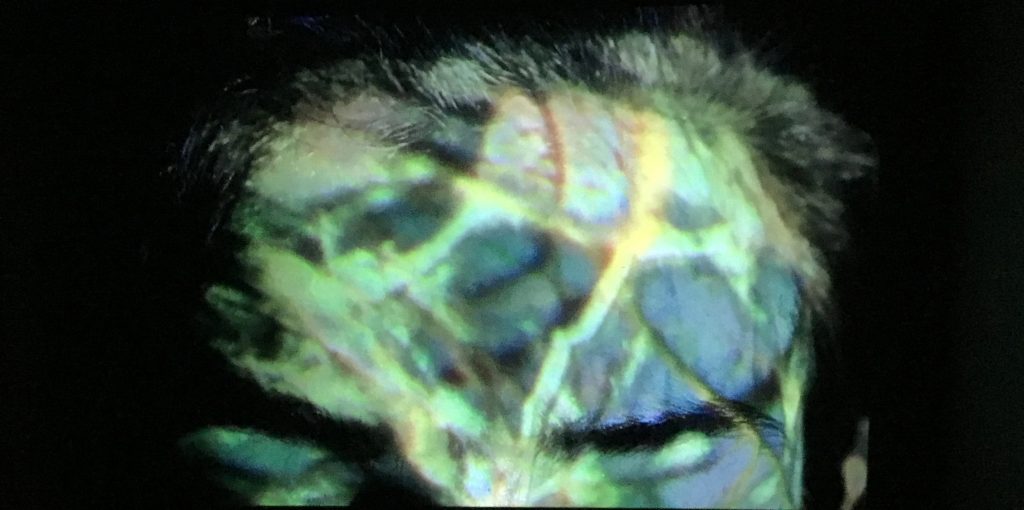
‘Biomimicry’ is loosely defined as the mimicking of life using imitation biological systems for the purpose of solving human problems.
When we lose our connection to nature….then we do not know how to nurture their environment or how to govern our world. We destroy our ecology at the same time as we destroy one another. From that perspective, healing our society goes hand in hand with healing our personal, elemental connection with the phenomenal (material) world. Chögyam Trungpa
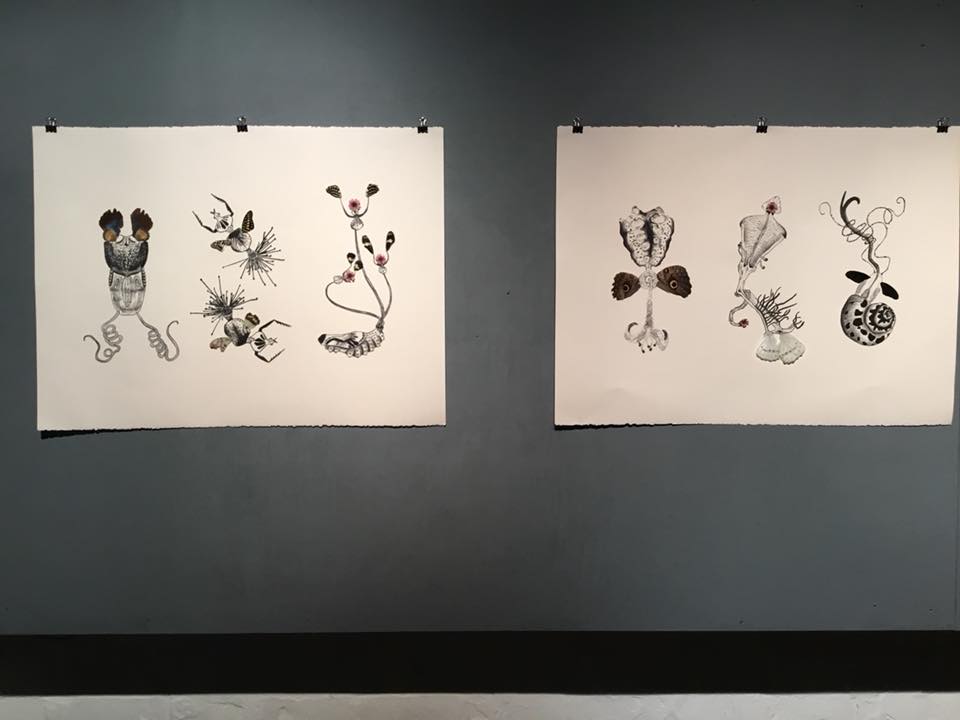
New Leaf artists are working with scientists and researchers with University of Wales Trinity St David and across a network of universities including University of Birmingham, Birmingham City University, Plymouth University, Oslo University, The University of the Basque Country BC3 (the Basque Centre of Climate Change), Autonomous University of Barcelona Institute of Environmental Sciences and Technology , Oslo and Akershus University College of Applied Sciences and the Oslo Academy of Fine Art.
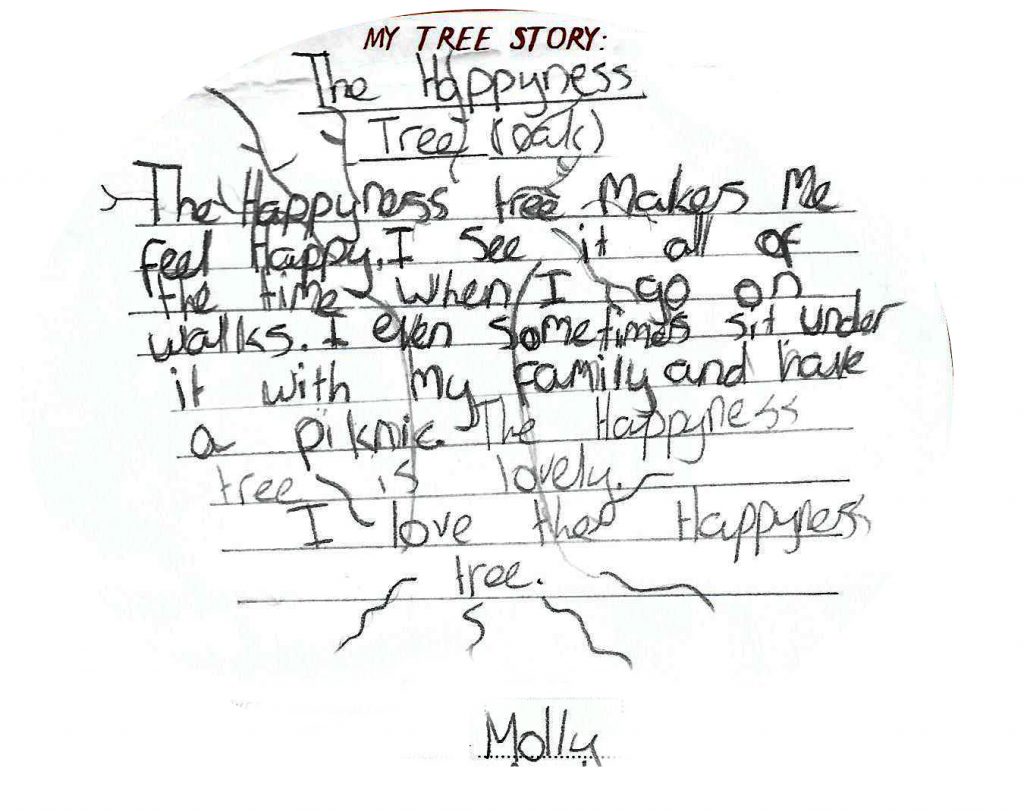
Strands of research linked to the UN;’s sustainable development goals, national and Birmingham strategic natural eco assessments and the research council’s liveable cities research:
Financial reslience. Natural Capital, carbon locking and innovation opportunities in product based biomimicry, sustainability through agricultural adaption. Social sustainability, adaption and resilience – process based biomimicry in the face of climate change, social anthropology health and wellbeing – open spaces in Cities, social change. Climate change research – dissemination and understanding of the gap between knowledge and belief, building social reslience through knowledge.

New Leaf commissioned Artists will be joined by artists from Wales, Norway and the Basque Country working with the universities and communities in the different countries to create artworks, seminars events and exhibitions between 2018 and 2020.
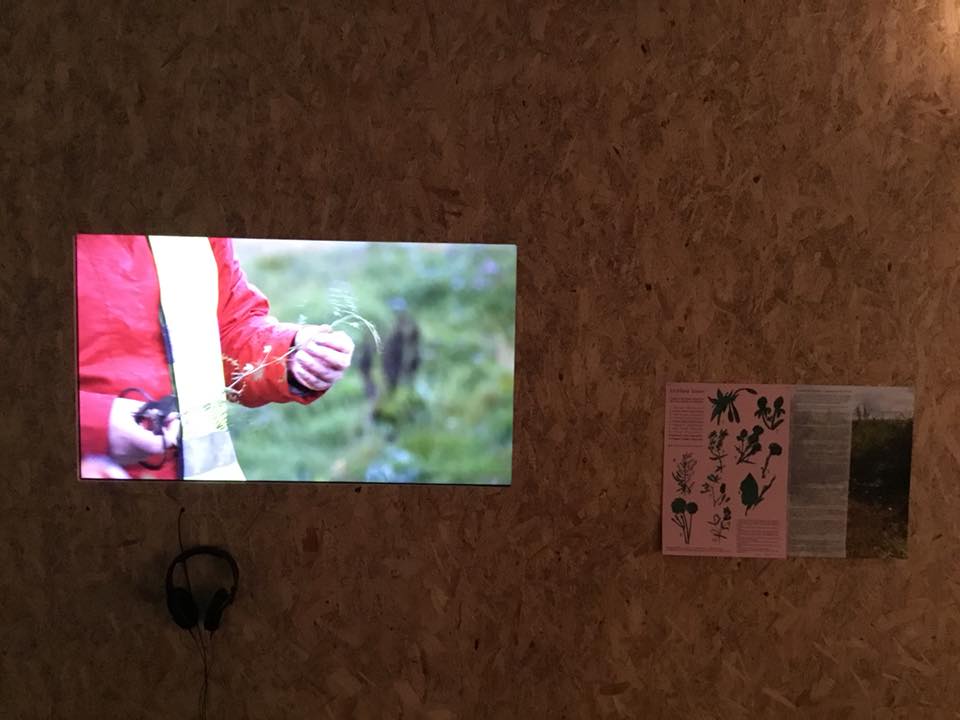
The program links the international Biophilic City and European Green Capital programmes.
‘To create engaging transformative visions of a better world, to increase our chances of solving the unsustainability of present social-ecological system dynamics….To create spaces for imagination and engagement with communities to get ownership about their climate futures at local/regional levels…. ‘Conventional science methods are not enough (to create a change in behaviour)…climate change is mostly a symptom and amplifier of impacts rather than a cause, sustainability is mostly an engagement challenge, not only a scientific one…Art based methods are uniquely placed to foster collective imagination, social energy and awareness.’ J. David Tàbara & Diego Galafasi Sustainabilogy Universitat Autònoma de Barcelona & Stockholm Resilience Centre
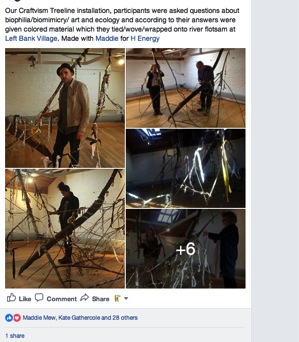
Treeline influences how scientists are affected by working with artists collaborations with academic and co-production perspectives, to make connections between heart and head, to see how contextual and cultural values of a community shape its environmental behaviour in view of climate action. Developing more effective communication strategies in order to engage society to take local action which will help decision makers to formulate sustainability strategies that are more effective, aligning to the well-being of Future Generations Act 2015 in Wales.